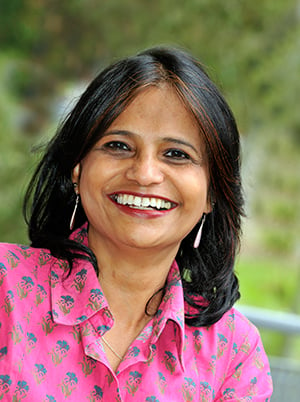Rethinking public spaces in battle against racism
Research news
In a world where many cities are facing growing inter-racial tensions, it is crucial that researchers and policy makers understand how different peoples can live together and how societies can combat the racism that places a burden of humiliation, anger, fear and hatred on many individuals.
Deakin social and cultural geographer, Dr Michele Lobo is taking a new approach in her research on this issue – identifying how small individual and collective interventions in public spaces can help to reduce inter-racial tensions.
Dr Lobo’s research has taken her to slam poetry sessions, performed by young Muslims in downtown Detroit, to investigating art activities in coastal reserves that are engaging Aborigines who live ‘rough,’ to walks along the beach that “make life bearable” for asylum seekers on temporary visas in Darwin.
Her research has shown that individual, positive human-to-human encounters are often the most successful way to improve intercultural relations, but encounters with a more-than-human world are equally important as a means of sustaining the “vitality of life” - whether by visits to the beach or to their mosque.
“Policy makers, urban planners and artists have a key role in designing public spaces and providing funds for small interventions that can create opportunities to support these encounters, even though outcomes are not always measurable,” Dr Lobo said.
“There are lots of tensions and stresses that people have to deal with in their daily life. When they are moving around in cities, the atmosphere can make an enormous difference to how people feel about each other.”
“Even the most ‘minor’ racist incidents have a negative effect, but they can be recomposed through everyday events that act as micro-scale interventions in city spaces.”
Dr Lobo’s research agenda is influenced by her position as a mature-aged migrant woman of colour living in a western city (Melbourne).
“This is a context where racism can suck out life from people of colour. Racism can be subtle, insidious or ‘in your face,’” she said.
Dr Lobo draws her inspiration from feminist thinkers of colour, such as Sara Ahmed (Professor in Race and Cultural Studies, University of London), who question the privilege of whiteness. She explained that insights from geographers, such as Ruth Fincher (Professor of Geography, University of Melbourne) and philosophers such as Felix Guattari, Gilles Deleuze and Brian Massumi, enable her to think of cities as places that can be animated by being attentive to diverse worlds.
She uses innovative techniques, such as photos and videos of everyday city life taken by Aborigines, asylum seekers, humanitarian migrants, ‘Muslims’ and migrant newcomers, to raise awareness of such worlds.
Dr Lobo holds an ARC Discovery Early Career Researcher Award (DECRA) and an Australian Research Council Discovery Award. She is a Senior Research Fellow with the Alfred Deakin Institute for Citizenship and Globalisation and received the Vice Chancellor's “Early Career Award for Research Excellence” (2013). Her two major research projects (2013-2015) stretch across the cities of Darwin and Melbourne, to Paris and Detroit.
In the first project, “Shared Belonging in Australia: Public Space and Intercultural Relations in Greater Darwin,” Dr Lobo has worked closely with the Larrakia Nation Aboriginal Corporation, the Multicultural Council of the Northern Territory and Charles Darwin University (CDU) to contribute to policy outcomes.
Through this project, she has exchanged knowledge with migrant newcomers from countries in Asia, Africa and the Middle East, Larrakia rangers who care for country, as well as Tiwi Islanders who live ‘rough’ and participate in the ‘Healthy Engagement and Assistance in Darwin’s Long-grass” (HEAL) program. This program offers art activities/materials, medical attention and healthy food to empower participants.
In her second major project, funded by the ARC, Dr Lobo is working with leaders in the field of religion and citizenship, including Prof Bryan Turner, City University of New York. As a member of the Deakin research team, she is exploring how Islamic beliefs, values, rituals and faith-based community practices contribute to feelings of safety, comfort, belonging and political engagement in three multicultural western cities: Melbourne, Detroit and Paris.
“Finding solutions involves being attentive to the spatial and cultural context of every city. For instance, in Detroit, slam poetry sessions are being taken up by disaffected Muslim Americans and African Americans and helping to induce feelings of belonging,” she said.
“The poetry sessions enable people to express feelings in a way that can’t be achieved with words. What happens can be almost imperceptible, but these events take individuals in different directions and help to produce feelings of love, connection and liveliness, rather than pain and shame. Instead of shrinking worlds, this type of intervention creates and enlarges multiple lifeworlds.”
“For planners and policy makers, these initiatives provide transferable knowledge about how spaces can be inclusive and citizens can be encouraged to reinscribe their city through individual and collective events that can escape ordinary words.”
Share this story

Key Fact
Dr Michele Lobo advocates a new way of looking at shared public spaces.
